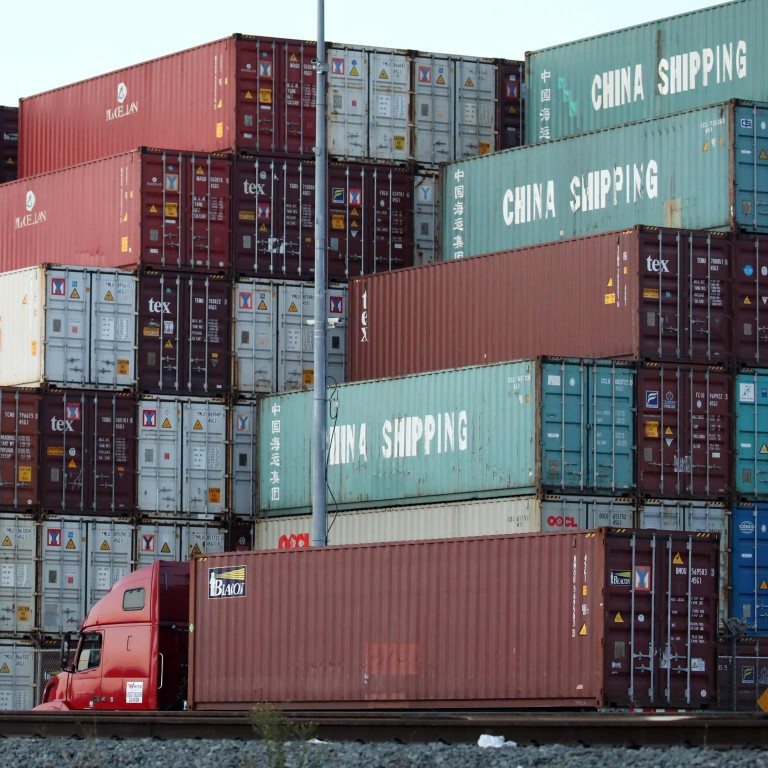
US, EU and Japan take aim at China with proposed WTO rules targeting state subsidies
- Top trade officials say existing regulations are insufficient to tackle market distortions
- They also call for technology transfers to be ‘fair, voluntary and based on market principles’
The United States, European Union and Japan have called for tougher WTO rules to curb market-distorting subsidies and forced technology transfers, a move that will add to pressure on China.
After meeting in Washington on Tuesday, top trade officials from the US, European Union and Japan said the World Trade Organisation’s existing rules were “insufficient to tackle market- and trade-distorting subsidisation existing in certain jurisdictions”, and agreed to push for new types of subsidies to be added to the prohibition list.
They included subsidies that were excessive, that could prop up uncompetitive firms, or those that could lead to industrial overcapacity and exclude private firms from the market, according to a joint statement.
Although the statement by US Trade Representative Robert Lighthizer, EU Trade Commissioner Phil Hogan and Japan’s economy minister Hiroshi Kajiyama did not mention any country, it was clearly taking aim at China.
It comes after two years of discussion between the US, EU and Japan on reforming the WTO, and the proposed rules now need the support of other members of the body.
The announcement was made a day before China and the US are due to sign a trade pact. The so-called phase one trade deal will be signed in Washington and includes pledges from Beijing to buy an additional US$200 billion worth of goods and services over two years, including agricultural products.
A de-escalation of trade tensions between the world’s two largest economies has been welcomed, but there has been concern among foreign businesses in China that it would not address their long-term grievances – including forced technology transfers to Chinese partners and hefty subsidies received by state firms and industries favoured by the government.
Chinese ex-vice minister slams US for putting WTO at risk
In the statement, the US, EU and Japan also pledged to work on “a new strong incentive” for subsidy notifications by WTO members, saying the current situation was “dismal”.
The subsidy issue is expected to be hotly debated in future negotiations between China and its trading partners, both within the 164-member WTO and in bilateral trade talks.
The statement also said technology transfers should be “fair, voluntary and based on market principles” and called for measures to stop forced transfers through export controls, investment review for national security purposes and domestic enforcement tools.
The statement also called for efforts to press “advanced WTO members claiming developing country status to undertake full commitments in ongoing and future WTO negotiations”, apparently referring to China.

